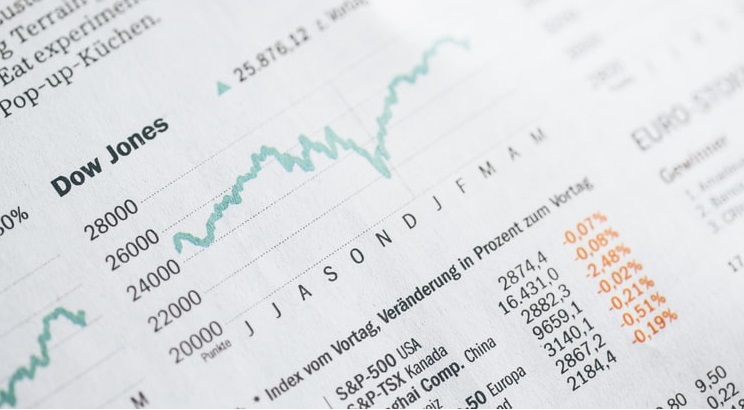The news around real estate has not been great for over a year now and the general consensus between working-aged adults that I know is that the work-life balance gained through the pandemic months will hopefully continue as employees would prefer to work from home more often than they used to pre-covid 19. Companies also have potential benefits from allowing workers to remain off-site working remotely as the need for the vast amounts of brick-and-mortar liabilities to house the employees between 9am and 5pm are seemingly less necessary.
However, the flip side is, will employees really benefit from working from home all the time? It is quite limiting being away from colleagues, and anyone new to the business will not benefit from the passing ad-hoc mentoring which is given by seasoned professionals seeing a quicker more efficient way of doing something, that the new recruit would take years to find out for themselves. There is the diminished social aspect, the camaraderie, the banter, and the water cooler gossip which is all diminished even with the daily sometimes hourly Zoom calls.
The compromise will inevitably be that workers will go into the office but probably just not as much as they used to. The offices will become adaptable and maybe companies will reduce the square footage they lease. So real estate will not disappear, and maybe now is the time to pick up some bargains in the real estate sector.
Real estate stocks are generally stable investments, which is supported by the UK government’s lack of building projects keeping the supply tight. Plus, there is the UK’s Treasury’s preference to allow banks to loan into the real estate market through the mortgage markets with the latest budget allowing the banks to loan out 95% Loan to Value (LTV) to help 1st-time buyers on to the property ladder. Savvy investors would have looked to the recent market crash as the perfect time to start buying into Real Estate Investment Trusts (REITS) and physical property alike, as over time, the demand has always outstripped supply due to the increasing UK population and limited available land we have to build on.
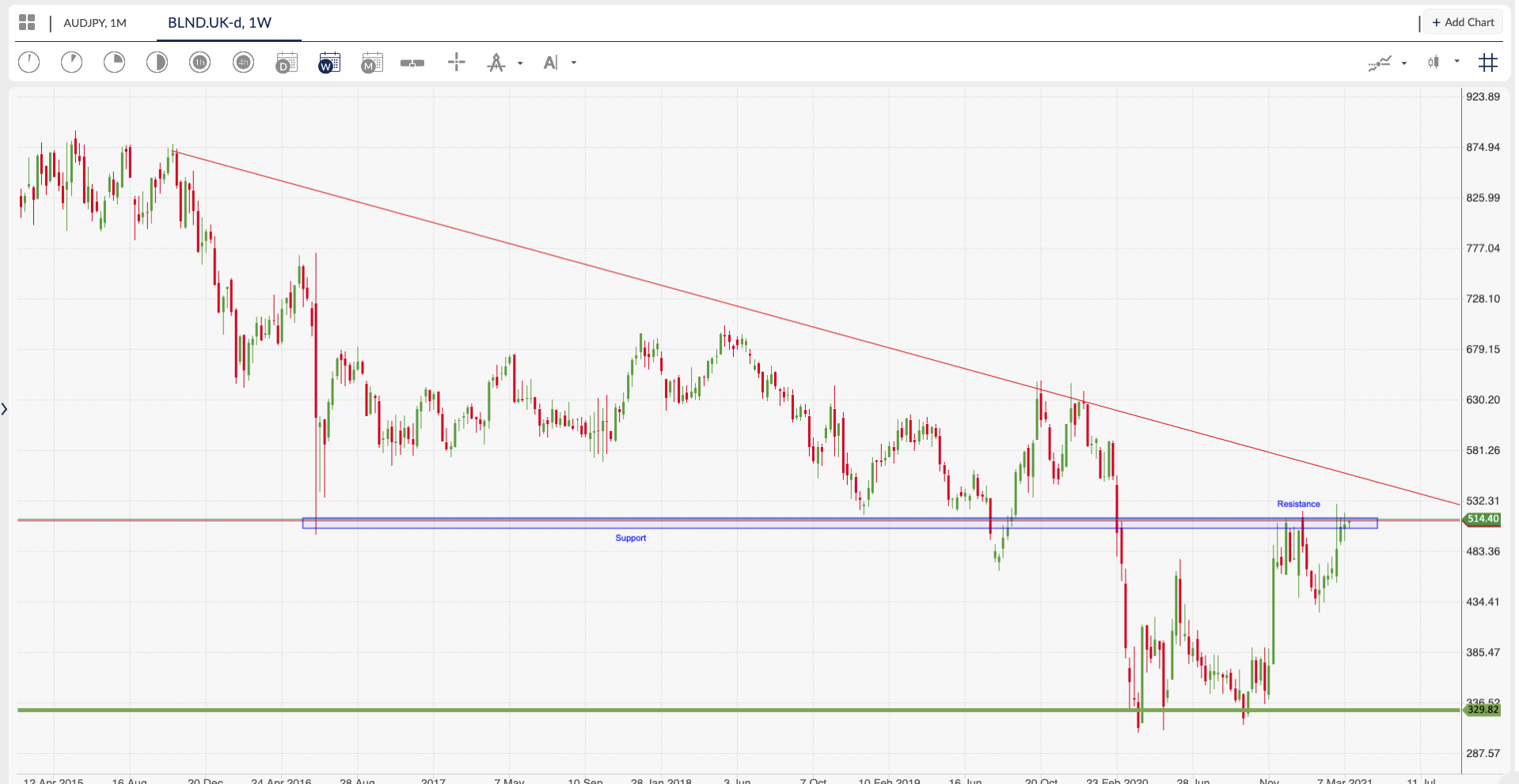

One company that suffered during the pandemic was British Land Company Plc, which is a real estate investment trust whose business is in ownership, management, financing, and development of commercial properties. The Office portion of the business is central London-centric and has several standalone buildings as well as urban centres comprising office and retails properties.
The share price of BLND.UK plummeted to the lows last seen at the end of the Great Financial Crash in 2008 and that was not as bad as the 2000 tech bubble market failure, so the last 3 major market events have now proven to investors that the 350p price level is a great area of support and a real floor in the market. The company has a market cap of £4.726B and Gross profits of £614M. The dividend yield is 1.647% paying 0.159 per share. Last year was obviously a bad one for the trust but recent price action is showing more than green shoots of hope.
Around the 500p level is proving to be a bit sticky as previous support is acting as resistance, but the recent daily trend is showing over the last 6 months that the price action is carving out higher highs and higher lows. This trend is bullish, and it is conceivable that as the vaccine roll-out continues the UK economy should open up back to similar levels pre-covid and that central London will once again become the thriving global leading city it used to be.
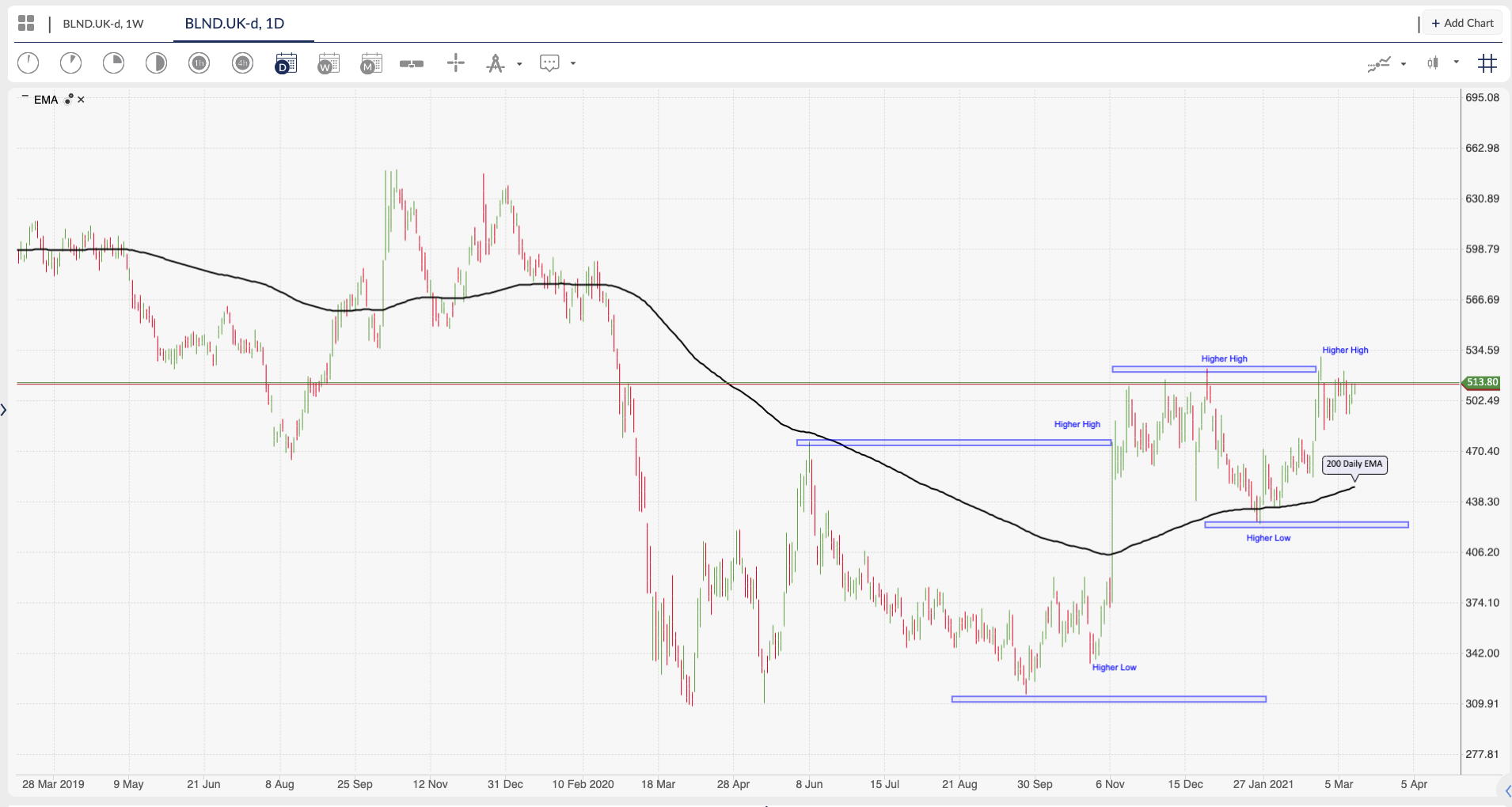

If we look at the technicals the weekly chart shows a form of resistance in the trendline which originates from the August 2016 highs through the October 2019 highs and if we were to tag it today, we’d see a share price print around 550p. Between 510 and 680 has been an area of balance with around 580 the most traded level in that range. My expectations would be that we again find that level before retesting the trendline from the opposite side and for it to then act as support, signalling a great buying opportunity. Should the price fail to get above the recent highs, we have the 430 area as near-term support, so investors can control their risk off that level. Just above early 2021 lows we have the rising Daily 200 Exponential Moving Average (EMA), and this has in the past acted as support and resistance but whilst BLND is trading above there, things are considered bullish.
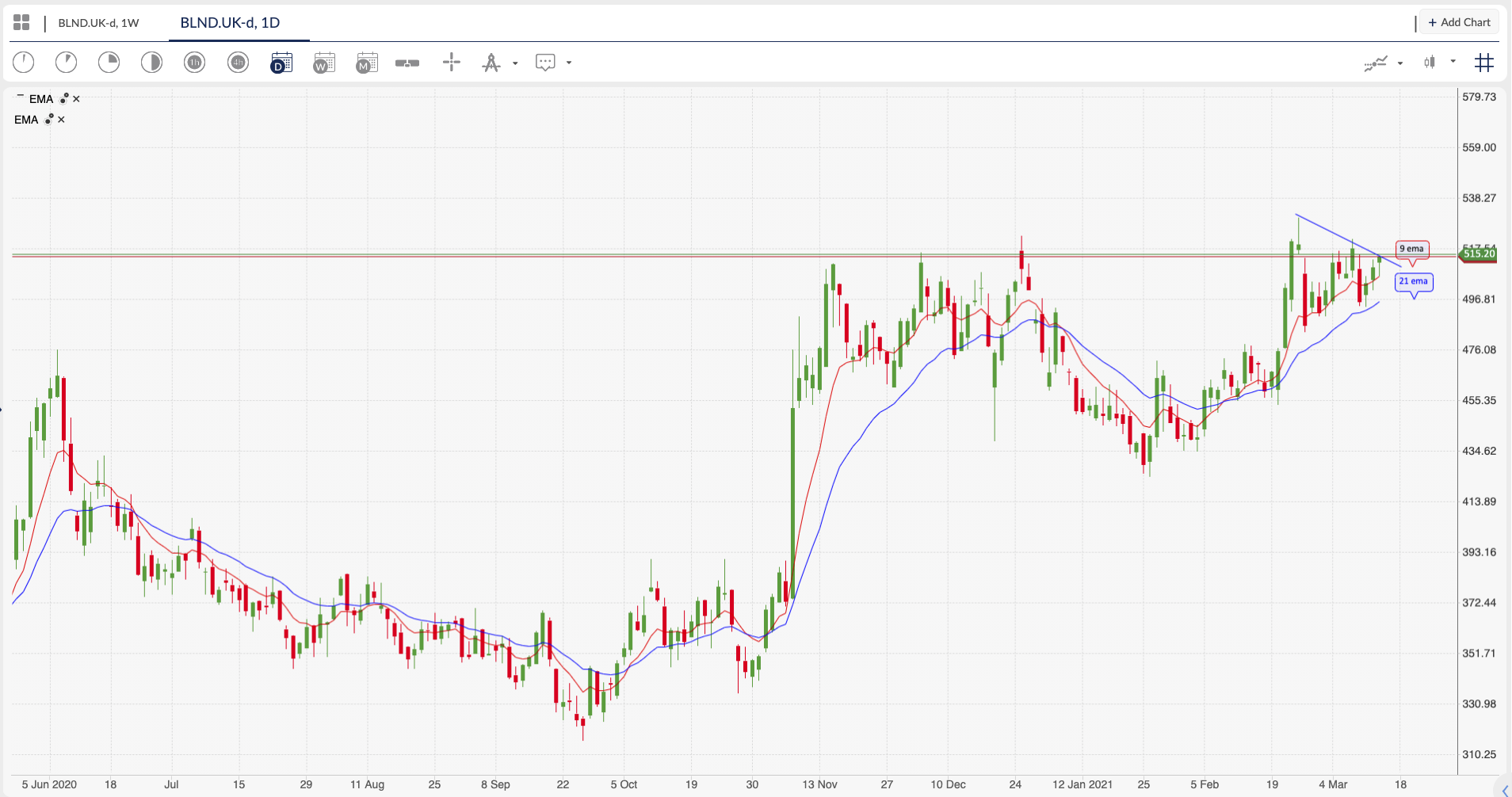

Moving down through the EMA’s if we take the 9 and 21 as our daily momentum, we also see that whilst the 9ema is above the 21ema we can benefit from taking long trades on any pullback. This combined with the bullish market structure is why I am feeling positive about this asset and the fundamentals and overall history of the company is worth noting as supporting reasons to buy at these historical lows and hold for an extended period of time.
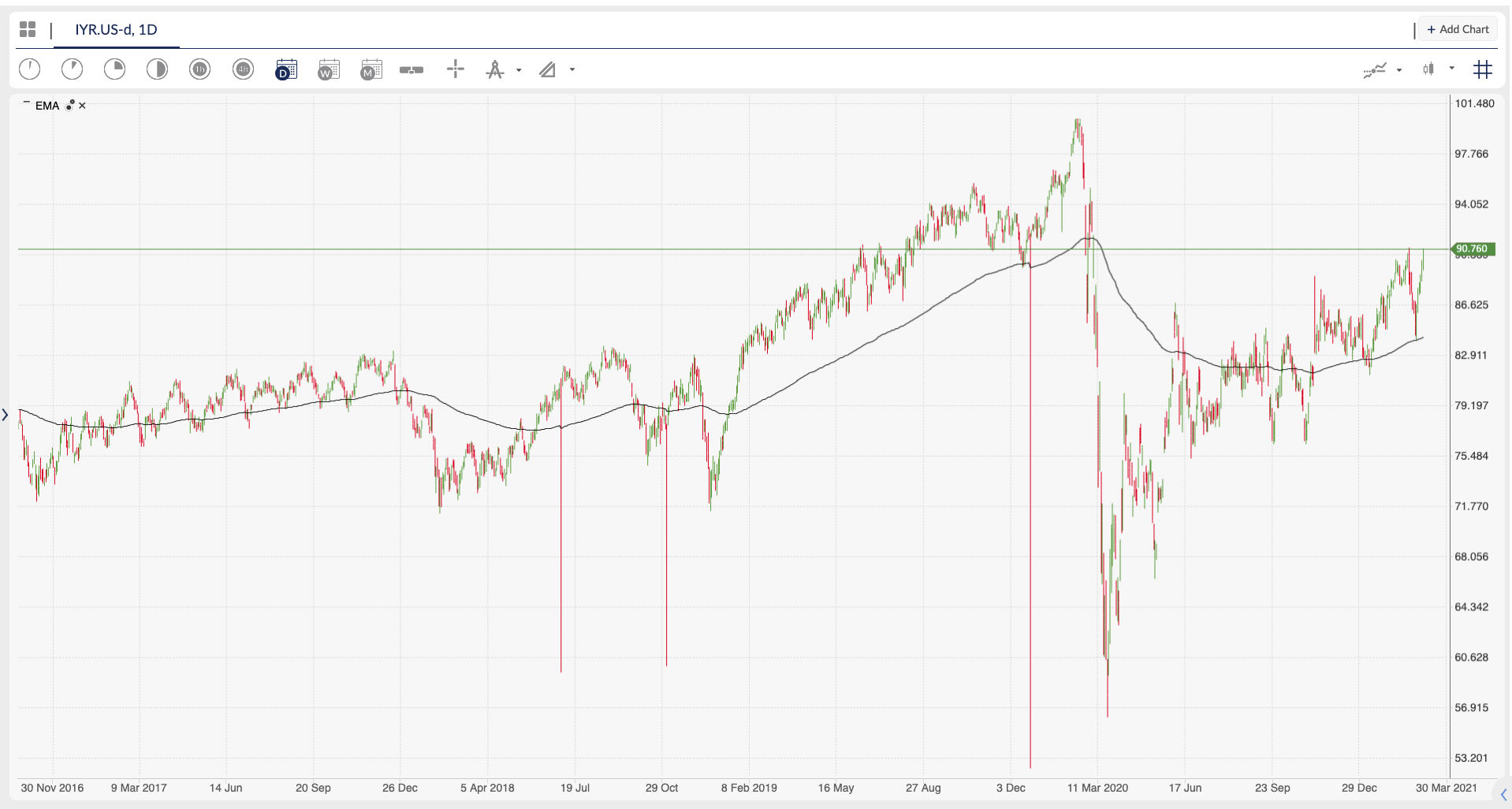

On the other side of the Atlantic, the iShares US Real Estate ETF (IYR.US) is also showing signs of continued bullishness as it is firmly above the daily 200 ema and is looking likely to try and take the December 2019 all-time highs.
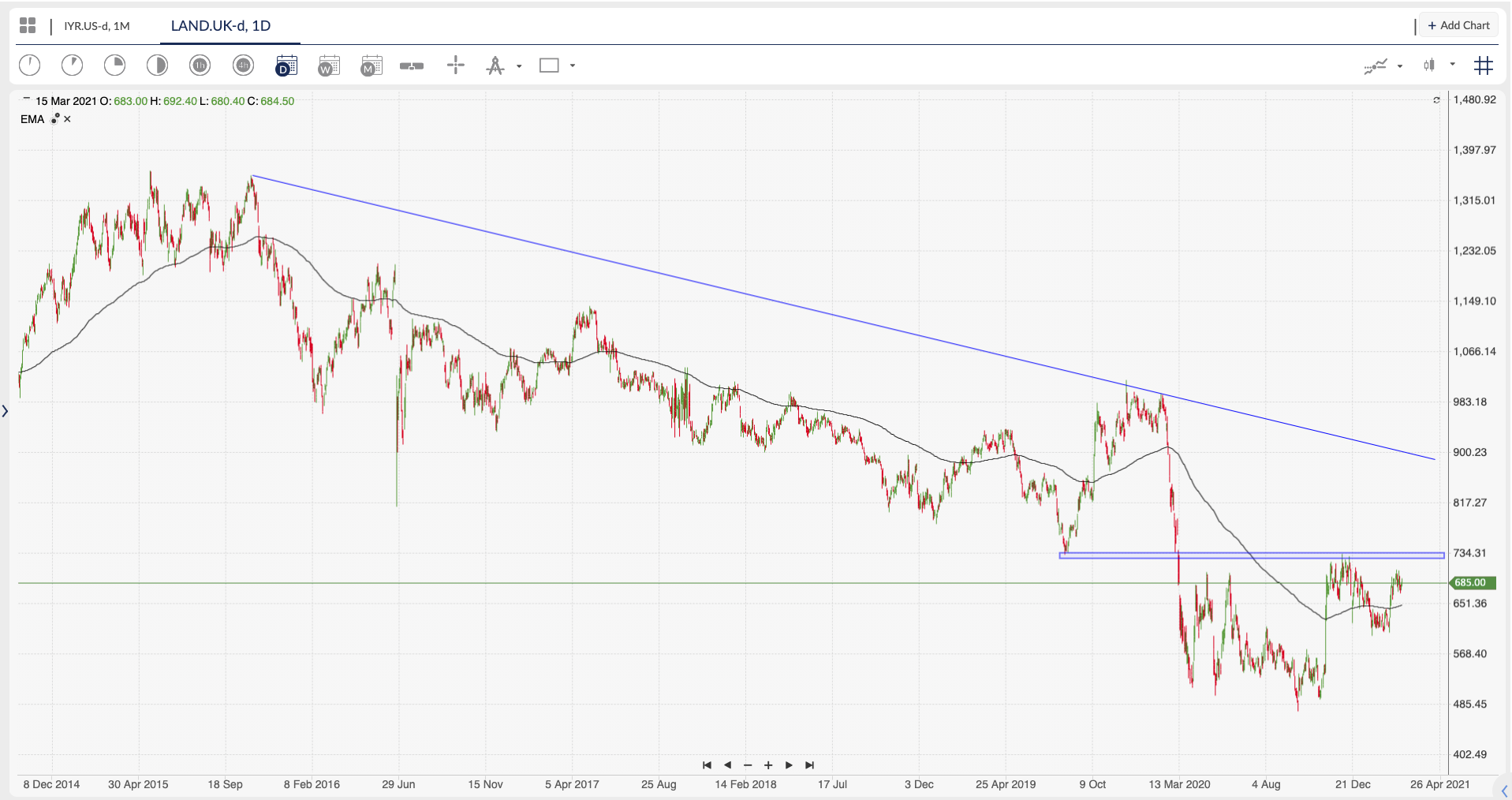

If this space is starting to sound interesting and you can see a case for also being bullish the REITS market, then a very similar company to British Land Company Plc is Land Securities (LAND.UK) another real estate investment trust with a portfolio of primarily central London assets. In January 2021 it was reported that Land Securities received 65% of their quarterly rent due at the end of December 2020, which was up from the 62% collected at the end of September mid-coronavirus pandemic. The LAND.UK daily chart again looks bullish when compared with the 200 period ema, but investors will be early to the share price which still has not taken out a recent high mark around the 732p price level. If that were to not prove to be a ceiling the chart shows little in terms of areas of resistance before the pre-covid highs, so assuming there is a volume void created by the pandemic sell-off it is quite probable that the buyers will be able to take back those prices with relative ease, assuming all else stays equal and there are no further market disruptions.

